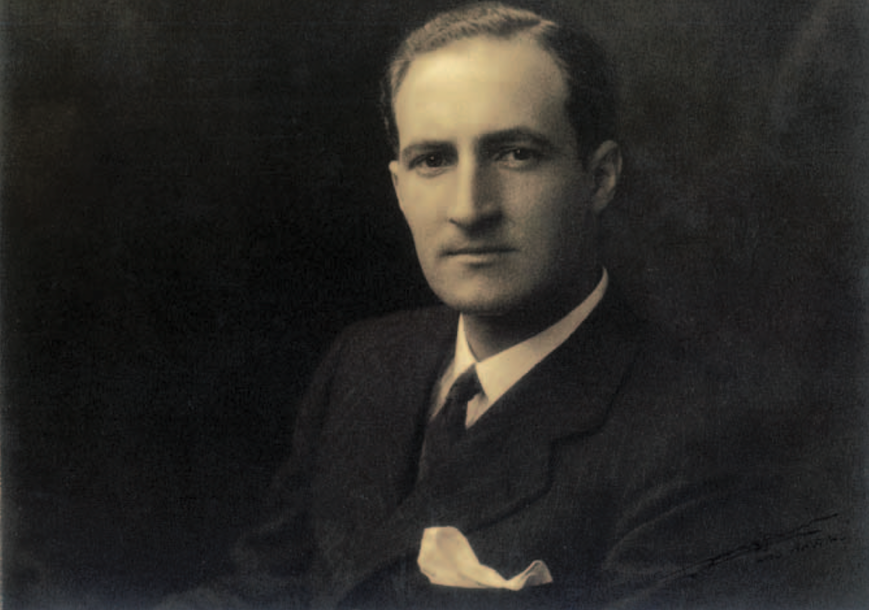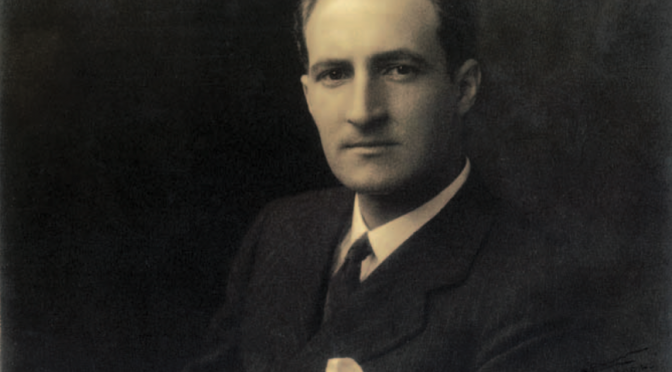Today, the three Basque provinces of Araba, Bizkaia and Gipuzkoa form the Basque Autonomous Community (BAC), a political entity within Spain that is led by the Lehendakari, or President, of the BAC. However, if we look back in time, the first Lehendakari presided over a very different government. The first Basque government was formed from the Statute of Autonomy and was almost immediately forced to flee once Bilbao fell in the Spanish Civil War, becoming a government in exile until after Franco’s death. The head of that first Basque government was José Antonio Aguirre y Lecube.

- Aguirre was born in Bilbao in 1904. He essentially became head of the family when his father died in 1920. He attended the University of Deusto where he studied law. Before entering politics, Aguirre was both a soccer player for Athletic Bilbao (he was part of the team that won the Copa del Rey in 1932) and the head of his family’s chocolate business. His first foray into public life was as president of the Catholic Youth of Bizkaia. In 1931, when he was 27 years old, he was elected mayor of Getxo and then as a deputy to the Constituent Cortes.
- In 1936, early in the Spanish Civil War, the Spanish Cortes passed the Statute of Autonomy of the Basque Country, effectively creating an independent Basque Country. On October 7, a convocation of mayors was held in Gernika and they elected Aguirre Lehendakari, or president, of the new government.
- It wasn’t long, however, before Bilbao fell to Franco’s forces; on June 19, 1937 to be exact. Aguirre escaped first to Paris, then to Barcelona, and finally to Belgium where he found himself when World War II broke out. Ironically, hunted by the Nazis, he hid under their noses in Berlin until he was ultimately able to make his way to New York via a circuitous route that took him to Sweden, Brazil, and Uruguay. He traveled to the Americas as the Panamanian Dr. José Álvarez Lastra, accompanied by his Venezuelan wife, María de Arrigorriaga (who was his real wife María Zabala), and their two children. He later recounted this adventure and his pursuit by Franco’s agents in his book Escape via Berlin. In New York, he became a professor of history at Columbia University.
- He resigned from Columbia in 1946, writing (as quoted by Gloria Totoricagüena in EuskoNews): “My duty lies with my Basque people’s cause of freedom and with the cause of Iberian freedom. … Only those of us who come to these lands of freedom exiled by tyranny can appreciate the deep human understanding to be found in America and the hope it symbolizes for all…. Someday, perhaps soon, we Basque shall return again to our freed country and once again open the Basque University which General Franco closed in his systematic persecution of our culture.”
- He returned to Paris in 1945 from where he led the Basque government in exile until his death in 1960. He collaborated with the allied governments, particularly the United States, placing the network of exiles he had at hand in the service of the CIA. However, as fears of the spread of communism rose, the support the Basque government in exile had from the United States eroded as they instead shifted support to the anti-communist Franco regime.
Primary sources: Estornés Lasa, Mariano [et al.]. Aguirre Lecube, José Antonio. Auñamendi Encyclopedia, 2020. Available at: http://aunamendi.eusko-ikaskuntza.eus/en/aguirre-lecube-jose-antonio/ar-7038/; Wikipedia; Euskal Etxeak 63, 2004.


